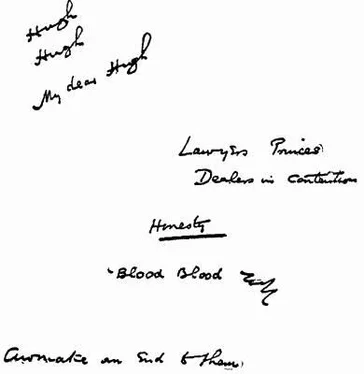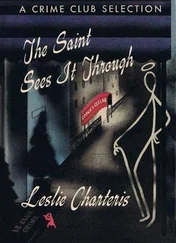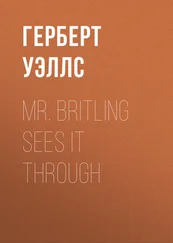Herbert Wells - Mr. Britling Sees It Through
Здесь есть возможность читать онлайн «Herbert Wells - Mr. Britling Sees It Through» весь текст электронной книги совершенно бесплатно (целиком полную версию без сокращений). В некоторых случаях можно слушать аудио, скачать через торрент в формате fb2 и присутствует краткое содержание. Жанр: Классическая проза, на английском языке. Описание произведения, (предисловие) а так же отзывы посетителей доступны на портале библиотеки ЛибКат.
- Название:Mr. Britling Sees It Through
- Автор:
- Жанр:
- Год:неизвестен
- ISBN:нет данных
- Рейтинг книги:4 / 5. Голосов: 1
-
Избранное:Добавить в избранное
- Отзывы:
-
Ваша оценка:
- 80
- 1
- 2
- 3
- 4
- 5
Mr. Britling Sees It Through: краткое содержание, описание и аннотация
Предлагаем к чтению аннотацию, описание, краткое содержание или предисловие (зависит от того, что написал сам автор книги «Mr. Britling Sees It Through»). Если вы не нашли необходимую информацию о книге — напишите в комментариях, мы постараемся отыскать её.
Mr. Britling Sees It Through — читать онлайн бесплатно полную книгу (весь текст) целиком
Ниже представлен текст книги, разбитый по страницам. Система сохранения места последней прочитанной страницы, позволяет с удобством читать онлайн бесплатно книгу «Mr. Britling Sees It Through», без необходимости каждый раз заново искать на чём Вы остановились. Поставьте закладку, и сможете в любой момент перейти на страницу, на которой закончили чтение.
Интервал:
Закладка:
And at Dower House they went about their businesses. Mr. Direck's arm healed rapidly; Cecily Corner and he talked of their objects in life and Utopias and the books of Mr. Britling, and he got down from a London bookseller Baedeker's guides for Holland and Belgium, South Germany and Italy; Herr Heinrich after some doubt sent in his application form and his preliminary deposit for the Esperanto Conference at Boulogne, and Billy consented to be stroked three times but continued to bite with great vigour and promptitude. And the trouble about Hugh, Mr. Britling's eldest son, resolved itself into nothing of any vital importance, and settled itself very easily.
§ 5
After Hugh had cleared things up and gone back to London Mr. Britling was inclined to think that such a thing as apprehension was a sin against the general fairness and integrity of life.
Of all things in the world Hugh was the one that could most easily rouse Mr. Britling's unhappy aptitude for distressing imaginations. Hugh was nearer by far to his heart and nerves than any other creature. In the last few years Mr. Britling, by the light of a variety of emotional excursions in other directions, had been discovering this. Whatever Mr. Britling discovered he talked about; he had evolved from his realisation of this tenderness, which was without an effort so much tenderer than all the subtle and tremendous feelings he had attempted in his—excursions, the theory that he had expounded to Mr. Direck that it is only through our children that we are able to achieve disinterested love, real love. But that left unexplained that far more intimate emotional hold of Hugh than of his very jolly little step-brothers. That was a fact into which Mr. Britling rather sedulously wouldn't look....
Mr. Britling was probably much franker and more open-eyed with himself and the universe than a great number of intelligent people, and yet there were quite a number of aspects of his relations with his wife, with people about him, with his country and God and the nature of things, upon which he turned his back with an attentive persistence. But a back too resolutely turned may be as indicative as a pointing finger, and in this retrogressive way, and tacitly even so far as his formal thoughts, his unspoken comments, went, Mr. Britling knew that he loved his son because he had lavished the most hope and the most imagination upon him, because he was the one living continuation of that dear life with Mary, so lovingly stormy at the time, so fine now in memory, that had really possessed the whole heart of Mr. Britling. The boy had been the joy and marvel of the young parents; it was incredible to them that there had ever been a creature so delicate and sweet, and they brought considerable imagination and humour to the detailed study of his minute personality and to the forecasting of his future. Mr. Britling's mind blossomed with wonderful schemes for his education. All that mental growth no doubt contributed greatly to Mr. Britling's peculiar affection, and with it there interwove still tenderer and subtler elements, for the boy had a score of Mary's traits. But there were other things still more conspicuously ignored. One silent factor in the slow widening of the breach between Edith and Mr. Britling was her cool estimate of her stepson. She was steadfastly kind to this shock-headed, untidy little dreamer, he was extremely well cared for in her hands, she liked him and she was amused by him—it is difficult to imagine what more Mr. Britling could have expected—but it was as plain as daylight that she felt that this was not the child she would have cared to have borne. It was quite preposterous and perfectly natural that this should seem to Mr. Britling to be unfair to Hugh.
Edith's home was more prosperous than Mary's; she brought her own money to it; the bringing up of her children was a far more efficient business than Mary's instinctive proceedings. Hugh had very nearly died in his first year of life; some summer infection had snatched at him; that had tied him to his father's heart by a knot of fear; but no infection had ever come near Edith's own nursery. And it was Hugh that Mr. Britling had seen, small and green-faced and pitiful under an anaesthetic for some necessary small operation to his adenoids. His younger children had never stabbed to Mr. Britling's heart with any such pitifulness; they were not so thin-skinned as their elder brother, not so assailable by the little animosities of dust and germ. And out of such things as this evolved a shapeless cloud of championship for Hugh. Jealousies and suspicions are latent in every human relationship. We go about the affairs of life pretending magnificently that they are not so, pretending to the generosities we desire. And in all step-relationships jealousy and suspicion are not merely latent, they stir.
It was Mr. Britling's case for Hugh that he was something exceptional, something exceptionally good, and that the peculiar need there was to take care of him was due to a delicacy of nerve and fibre that was ultimately a virtue. The boy was quick, quick to hear, quick to move, very accurate in his swift way, he talked unusually soon, he began to sketch at an early age with an incurable roughness and a remarkable expressiveness. That he was sometimes ungainly, often untidy, that he would become so mentally preoccupied as to be uncivil to people about him, that he caught any malaise that was going, was all a part of that. The sense of Mrs. Britling's unexpressed criticisms, the implied contrasts with the very jolly, very uninspired younger family, kept up a nervous desire in Mr. Britling for evidences and manifestations of Hugh's quality. Not always with happy results; it caused much mutual irritation, but not enough to prevent the growth of a real response on Hugh's part to his father's solicitude. The youngster knew and felt that his father was his father just as certainly as he felt that Mrs. Britling was not his mother. To his father he brought his successes and to his father he appealed.
But he brought his successes more readily than he brought his troubles. So far as he himself was concerned he was disposed to take a humorous view of the things that went wrong and didn't come off with him, but as a "Tremendous Set-Down for the Proud Parent" they resisted humorous treatment....
Now the trouble that he had been hesitating to bring before his father was concerned with that very grave interest of the young, his Object in Life. It had nothing to do with those erotic disturbances that had distressed his father's imagination. Whatever was going on below the surface of Hugh's smiling or thoughtful presence in that respect had still to come to the surface and find expression. But he was bothered very much by divergent strands in his own intellectual composition. Two sets of interests pulled at him, one—it will seem a dry interest to many readers, but for Hugh it glittered and fascinated—was crystallography and molecular physics; the other was caricature. Both aptitudes sprang no doubt from the same exceptional sensitiveness to form. As a schoolboy he exercised both very happily, but now he was getting to the age of specialisation, and he was fluctuating very much between science and art. After a spell of scientific study he would come upon a fatigue period and find nothing in life but absurdities and a lark that one could represent very amusingly; after a bout of funny drawings his mind went back to his light and crystals and films like a Magdalen repenting in a church. After his public school he had refused Cambridge and gone to University College, London, to work under the great and inspiring Professor Cardinal; simultaneously Cardinal had been arranging to go to Cambridge, and Hugh had scarcely embarked upon his London work when Cardinal was succeeded by the dull, conscientious and depressing Pelkingham, at whose touch crystals became as puddings, bubble films like cotton sheets, transparency vanished from the world, and X rays dwarfed and died. And Hugh degenerated immediately into a scoffing trifler who wished to give up science for art.
Читать дальшеИнтервал:
Закладка:
Похожие книги на «Mr. Britling Sees It Through»
Представляем Вашему вниманию похожие книги на «Mr. Britling Sees It Through» списком для выбора. Мы отобрали схожую по названию и смыслу литературу в надежде предоставить читателям больше вариантов отыскать новые, интересные, ещё непрочитанные произведения.
Обсуждение, отзывы о книге «Mr. Britling Sees It Through» и просто собственные мнения читателей. Оставьте ваши комментарии, напишите, что Вы думаете о произведении, его смысле или главных героях. Укажите что конкретно понравилось, а что нет, и почему Вы так считаете.






